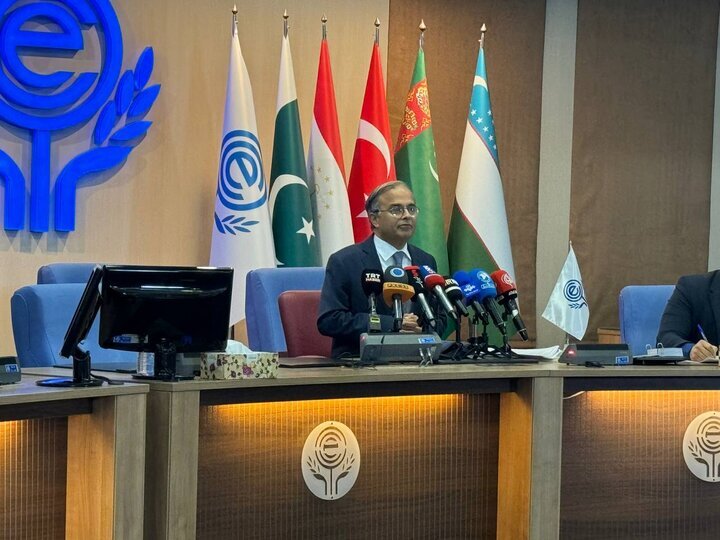TEHRAN – The Secretary General of the Economic Cooperation Organization (ECO), Asad Majeed Khan, has urged member states to revive historical connections along the ancient Silk Road and transform the region into a global air transport hub.
Speaking at a press conference in Tehran following the ECO Council of Ministers meeting, he highlighted the organization’s growth and future ambitions.
“ECO has expanded from three member countries in 1992 to ten today. This year marks the 32nd anniversary of its growth,” Majeed Khan said. He noted that Iran’s hosting of the meeting was significant, as it was the first time since 2013 that the country had held this gathering.
Strategic vision for future
Majeed Khan outlined plans for the coming year, including a meeting in Kazakhstan under the theme “Advancing Regional Transportation Economy and Sustainable Development.”
With the ECO Vision 2025 nearing its conclusion, he emphasized the need to define new objectives for the next decade. “Reforms are essential to increase our impact in the region and align with global changes,” he said.
The ECO Secretariat has been tasked with developing a new roadmap, with a high-level brainstorming session scheduled for February 2024.
Majeed Khan expressed concerns over low intra-ECO trade, which accounts for just $82 billion of the region's $1.06 trillion in global trade. “This is far from satisfactory,” he said, emphasizing the need to address payment system challenges and secure funding for infrastructure projects, particularly in rail transportation.
He also highlighted the importance of expanding transit corridors, harmonizing tariffs, and facilitating visas for traders and travelers. “We must revive historical ties through the Silk Road and create seamless rail and air networks,” he stated, adding that discussions are underway to establish visa-free travel agreements among member states.
Tackling climate change and promoting cultural initiatives
ECO members face significant climate change vulnerabilities. Majeed Khan pointed to recent achievements, such as Azerbaijan hosting COP29 and establishing a clean energy center in Baku.
“We aim to transition from fossil fuels to green energy and promote a circular economy across the region,” he said.
ECO has launched several initiatives to boost regional tourism, including designating Tourism Capitals, appointing Tourism Ambassadors, and creating a virtual tourism portal. Majeed Khan underscored the importance of tourism as a driver of economic growth and cultural connectivity.
Regional stability and humanitarian issues
Addressing Afghanistan, Majeed Khan reaffirmed ECO’s commitment to supporting stability and welfare in the country.
He also emphasized the importance of resolving the humanitarian crisis in Gaza, calling for a ceasefire and international aid. Additionally, the Council of Ministers condemned unilateral sanctions on ECO member states, describing them as unjust and in violation of international principles.
Majeed Khan highlighted ECO’s growing collaboration with international organizations such as the Shanghai Cooperation Organization (SCO) and BRICS, noting significant overlap between their memberships. ECO also serves as an observer in the United Nations and CICA.
“ECO is a bridge among nations, promoting connectivity and cooperation across trade, transport, clean energy, and other sectors,” Majeed Khan concluded.


No comments:
Post a Comment